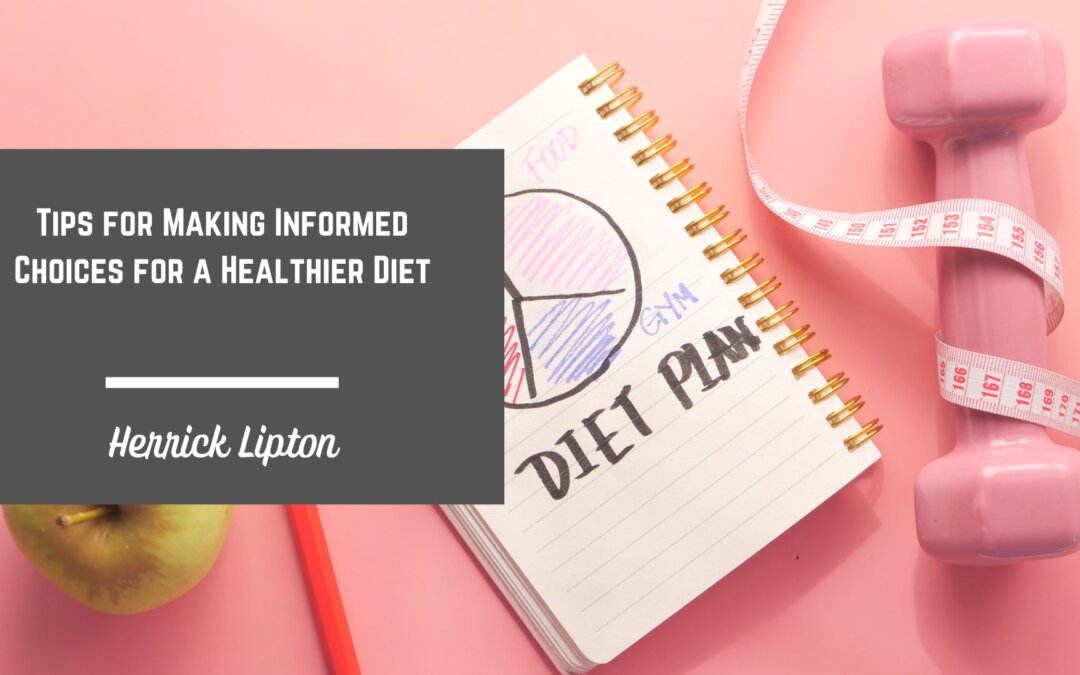When tempting treats and fast-food options are on every corner, making informed choices for a healthier diet can be challenging. However, taking control of your eating habits is vital to improving your overall well-being and longevity. With the proper knowledge and strategies, you can transform your diet and enjoy the benefits of a healthier lifestyle. Here are some valuable tips to help you make informed choices for a more nutritious diet.
- Educate Yourself: One of the first steps to making informed dietary choices is to educate yourself about nutrition. Understanding the basics of macronutrients (carbohydrates, proteins, and fats) and micronutrients (vitamins and minerals) will empower you to make smarter decisions regarding meal planning. Reliable sources such as government health websites, nutrition books, and reputable health magazines can provide valuable information.
- Read Food Labels: Food labels contain essential information about a product’s ingredients, nutritional content, and serving size. Pay attention to the serving size, calories, and the amount of key nutrients like fiber, protein, and vitamins. Be cautious of hidden sugars, unhealthy fats, and artificial additives. The more you become accustomed to reading labels, the easier it will be to select healthier options.
- Plan Your Meals: A well-thought-out meal plan can make a huge difference in your diet. Plan your weekly meals, including breakfast, lunch, dinner, and snacks. This allows you to ensure a balanced intake of nutrients and helps you avoid impulsive, less healthy food choices when you’re hungry and pressed for time.
- Prioritize Whole Foods: Whole foods are minimally processed and provide essential nutrients. They include fruits, vegetables, whole grains, lean proteins, and nuts. These foods are rich in vitamins, minerals, and fiber, which support your overall health and help you maintain a healthy weight. Aim to fill your plate with colorful whole foods to ensure you get a wide range of nutrients.
- Reduce Processed Foods: Processed foods often contain excessive added sugars, unhealthy fats, and artificial additives. While it may be convenient to grab a pre-packaged snack, try minimizing your consumption. Opt for fresh, natural alternatives whenever possible to reduce your intake of hidden, unhealthy ingredients.
- Portion Control: Even nutritious foods can become unhealthy if consumed in excessive amounts. Use smaller plates, bowls, and utensils to help control portion sizes. Eating mindfully and savoring each bite can help you recognize when you’re full, preventing overeating.
- Stay Hydrated: Drinking water is vital to a healthy diet. It aids digestion, helps regulate body temperature, and supports various bodily functions. Sometimes, thirst can be misinterpreted as hunger, leading to unnecessary snacking. Drink plenty of water throughout the day and prevent excessive calorie consumption.
- Limit Added Sugars: Excessive sugar intake can cause health issues like obesity, heart disease, and diabetes. Be vigilant about hidden sugars in processed foods and beverages. Gradually reduce sugar consumption by choosing unsweetened or lightly sweetened alternatives and sparingly using natural sweeteners like honey or maple syrup.
- Be Mindful of Fats: Not all fats are created equal. Trans fats and saturated fats are unhealthy and should be limited, but healthy fats like those in avocados, nuts, and olive oil can positively affect your health. Include these sources of healthy fats in your diet while moderating your intake of less healthy fats.
- Seek Professional Guidance: For people with specific dietary goals, restrictions, or health concerns, consider seeking guidance from a registered dietitian or nutritionist. They can provide personalized advice and help you create a customized eating plan that works with your needs and preferences.
Making informed choices for a healthier diet is a journey that requires patience and dedication. Small, sustainable changes can lead to long-term improvements in your health and well-being.
